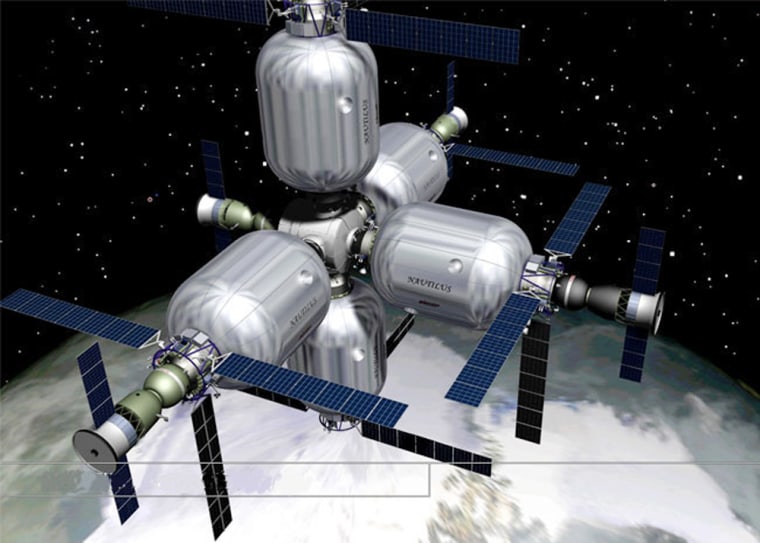The much-anticipated first orbital test of technology that could lead to a "space hotel" will be delayed, Bigelow Aerospace announced Tuesday. The blastoff, widely believed to have been planned for June 16, will now not take place before early July.
“We have just been informed that there will be a three- to four-week delay of our first launch,” Chris Reed, publicist for the Las Vegas-based company, said in an e-mail advisory. “We are told that if there are no other delays, our new launch time frame will be between July 4th and July 14th.”
The Genesis 1 payload will be a one-third-scale model of an inflatable habitation module that could form the backbone of an orbital facility for space tourists and commercial space researchers sometime in the next decade. NASA experimented with the concept early in the international space station program, but budget cuts forced them to terminate research. Bigelow Aerospace has picked up that approach and has perfected the technology, observers say.
The test flight is expected to subject the flexible exterior wall material to space conditions for an extended period of time, while interior instrumentation will monitor pressure and temperature. In theory, a flexible wall should be even more resistant than a metal wall to penetration by micrometeorites and space debris.
In addition to the space hotel angle, the mission is of high interest because it would be the first commercial satellite launch from an active Russian military missile base, where dozens of SS-18 Satan intercontinental ballistic missiles remain aimed at the United States, each with 10 thermonuclear warheads.
The launch vehicle, a commercialized version of the SS-18 called the Dnepr, has already made several successful satellite launches from the Russian main spaceport at Baikonur in Kazakhstan. Commercialized by the Kosmotras Corp., it can carry up to 3 tons of cargo into orbit.
Two years of preparation
For the past two years, officials of the Russian Defense Ministry have been preparing to launch the same commercial configuration directly from this military base. In that way, the operational budget will go to the Strategic Rocket Forces, the agency that runs the base at Dombarovsky, rather than the Military Space Forces, which until recently ran most of the Baikonur operations.
Genesis 1 will be only the first of a long series of commercial satellite launches that it is hoped will be made from Dombarovsky, a missile base just east of Orsk in the southwest corner of Siberia.
According to Reed, the reasons for the Genesis 1 delay are “due to special preparations that the launch provider is continuing to make for our flight.” Bigelow Aerospace only last week unveiled new pages on its Web site dealing with hitherto-undisclosed features of the payload, involving views that will be transmitted to Earth.
“This flight contains our Genesis 1 spacecraft with a total of 13 cameras inside and outside the spacecraft,” Reed explained. External cameras will show scenes of Earth. The interior cameras will show floating personal items placed aboard the spacecraft by the firm’s employees.
Fees for flying mementos
Bigelow Aerospace is now seeking private customers willing to pay modest fees to place their own personal items on the next payload. “The Genesis 2 spacecraft scheduled to fly this coming fall will be our first commercial effort,” Reed continued, “and it is for that flight that we are currently taking only reservations.
“If the Genesis 1 spacecraft functions as anticipated,” he said, “we shall then proceed to contact all of the parties who have made Genesis 2 reservations and complete the transactions to ‘Fly Your Stuff.’”
Reservations are still being taken, he added.
“Only after we have launched our first spacecraft and obtained satisfactory results from a variety of information sources onboard the spacecraft will we then actually convert reservations to purchases,” he explained.
